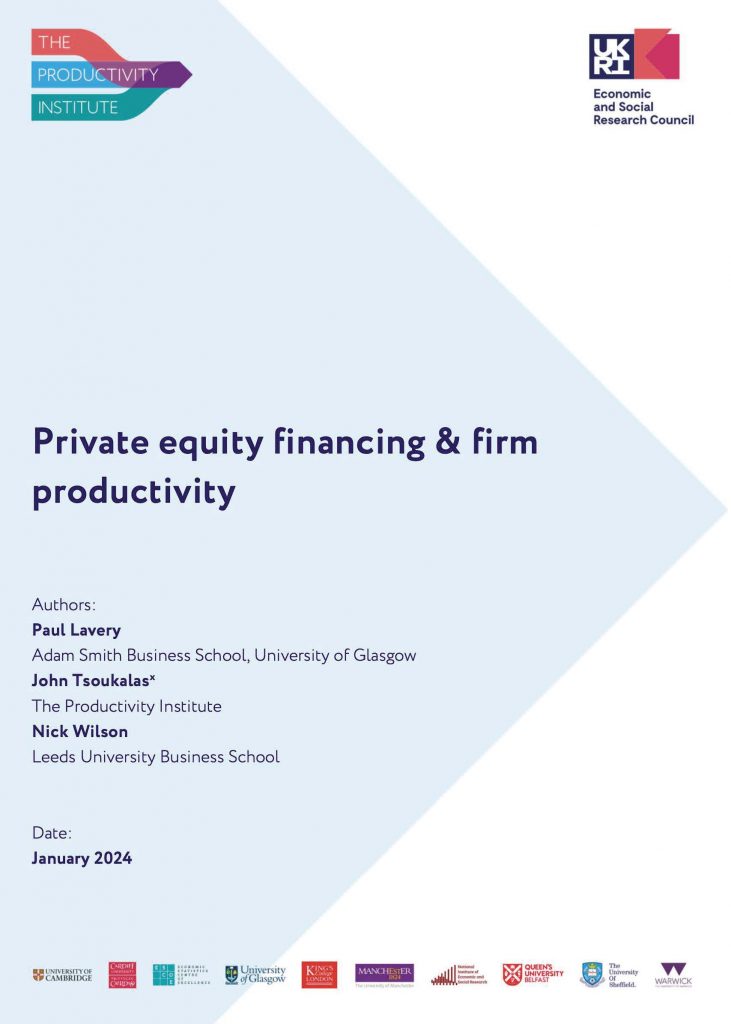
Executive Summary
Private equity (PE), since the 1980s, has become a significant player in corporate acquisition and restructuring in the UK and globally. In the UK, PE plays and important role by providing funding and expertise for businesses at various stages of their growth cycle. In doing so PE can help to fuel entrepreneurship, drive economic growth, and create employment opportunities. Private equity funds are specialized vehicles which raise capital from institutional and private investors to take majority control of companies, often using considerable amounts of debt financing. PE typically seek to improve the performance and value of their target companies over a certain period of time before selling to trade, another investor, or listing on the stock market. Some commentators, however, have pointed to PE investor ‘short-termism’. Critics of the PE model of company acquisition and investment have focused attention on the potential risks of the use of debt finance (leverage) for target firms, which can leave firms vulnerable to financial distress, particularly after PE exit.
In this paper, we track private equity deals and private equity backed firms over two decades, including periods of recession (GFC 2008) and crises (COVID-19), and by sector and region. We employ a range of econometric techniques and a comprehensive firm level dataset of private equity transactions and data on non-PE-backed comparator firms to study the impact of private equity funding and ownership on firm-level productivity. Private equity investors enable companies to expand, develop new products, enter new markets, and innovate. We outline the mechanisms through which private equity, as active owners, can build resilience and drive productivity growth in their portfolio firms. We find that, in comparison to a control group, private equity target firms experience a significant productivity boost after acquisition. Our analysis suggest that this beneficial productivity effect persists even after the private equity shareholder exits the firm. We find statistically significant increases in employment and capital expenditures in target firms, in comparison to the control group, supporting the view that private equity unlocks the growth potential of firms. Moreover, our analysis suggests that target firm productivity may be more resilient during times of major disruptive episodes such as the Global Financial Crisis and the COVID-19 pandemic.
The findings are particularly pertinent as UK productivity growth has stalled considerably over the last decade and lags behind that of other developed economies. A lack of business investment and difficulties in accessing finance have been cited as potential drivers of the UK’s stagnating productivity. Consequently, promoting private capital investment, such as venture capital and private equity investment, could help not just in widening firm-level access to finance, but in boosting firm growth and productivity. Moreover, active investors, such as PE and venture capital, provide important boosts to managerial skill sets and effective governance.
